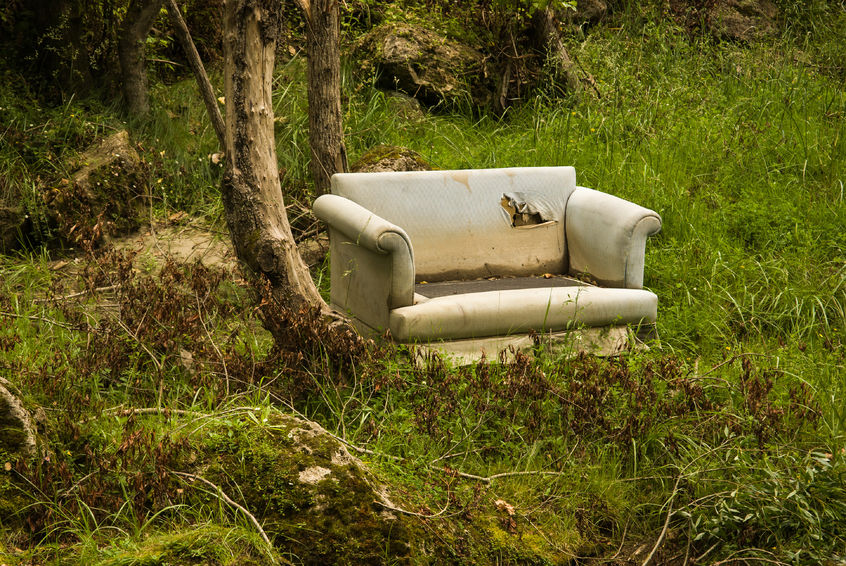
New figures show there were over 1 million fly-tipping incidents on public land last year, but rural campaigners warn it 'barely scratches the surface' of the crime.
Defra has released its annual figures today, showing that, for the 2022-2023 year, local authorities in England dealt with 1.08 million fly-tipping incidents.
This was a decrease of just one percent from the 1.09 million reported a year prior.
Around 60% of fly-tips involved household waste, while the most common size category for incidents was equivalent to a ‘small van load’.
However, the figures do not cover incidents on private land, with the Country Land and Business Association (CLA) saying these were 'blighting' rural areas.
Farmers and landowners bear the cost of removing rubbish, with the CLA noting that they pay on average £1,000 to remove waste.
The group's president Victoria Vyvyan said: “These fly-tipping figures barely scratch the surface of a crime that’s blighting rural communities, with incidents on private land going unrecorded on a mass scale.
"This is not a victimless crime - in some cases they have paid up to £100,000 to clear up other people’s mess or risk facing prosecution themselves.
“It’s not just litter blotting the landscape, but tonnes of household and commercial waste which can often be hazardous – even including asbestos and chemicals – endangering farmers, wildlife, livestock, crops and the environment.
“While courts can sentence offenders to prison or unlimited fines, prosecutions are rare and criminals clearly do not fear the system," Ms Vyvyan added.
“Without more progress farmers, not the criminals, will continue to pay the price.”
Fly-tipping continues to be a huge problem and one that plagues the lives of many living and working in the countryside.
Rural bodies have called for local authorities to help clear fly-tipping incidents on private as well as public land, while the various enforcement agencies must be properly trained and resourced.
Despite this, the government has started to take the issue seriously, launching several initiatives to combat the issue.
These include increasing the maximum penalty for fly-tipping from £400 to £1,000 as part of its Antisocial Behaviour Plan and a new fly-tipping post within the National Rural Crime Unit.
Farmers recently welcomed plans to abolish fees that local authorities charge for disposing of DIY waste at recycling centres.
Following overwhelming support from the industry and the wider public, households will no longer have to pay to get rid of DIY waste.
However, the NFU said more should be done: “The latest figure showing just over a million reported fly-tips is still way too high," said vice president David Exwood.
“The NFU believes more can and should be done including better promoting the household duty of care to ensure all householders are aware that their responsibility for waste disposal is maintained to its final disposal point.
"We also want to see accreditation for all council enforcement officers to give them enhanced police-style powers to tackle fly-tipping and littering.”
